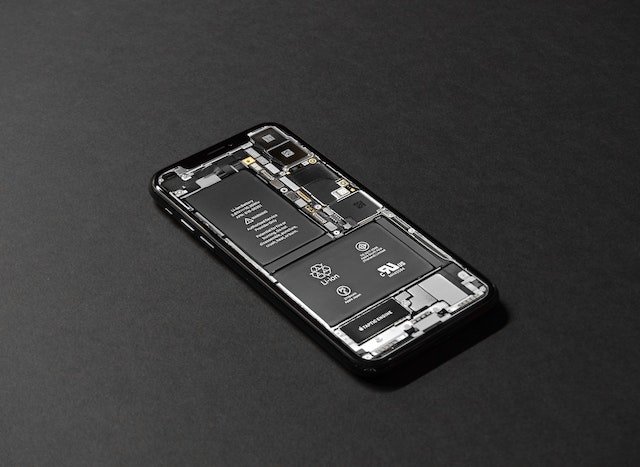9 best Tips How to Choose the Right Smartphone for Your Needs
In the modern age, smartphones have become an integral part of our daily lives. How to Choose the Right Smartphone, these pocket-sized devices serve as our communication hubs, entertainment centers, and productivity tools.
However, with a vast array of options available, choosing the right smartphone can be a daunting task.
In this comprehensive guide, we will explore the key factors to consider when selecting a smartphone tailored to your specific needs.
From understanding the latest trends to examining real-life case studies and addressing frequently asked questions, we’ve got you covered on your journey to finding the perfect smartphone.

- Table of Contents
- Introduction
- 1. Assessing Your Needs
- 2. Operating System: iOS vs. Android
- 3. Performance and Processing Power
- 4. Camera Capabilities
- 5. Display Quality and Size
- 6. Battery Life and Charging
- 7. Storage Options
- 8. Design and Build
- 9. Budget Considerations
- Case Study: Mark’s Quest for the Ultimate Smartphone
- Emerging Trends in Smartphone Technology
- FAQs
- Conclusion
Table of Contents
- Introduction
- Assessing Your Needs
- Operating System: iOS vs. Android
- Performance and Processing Power
- Camera Capabilities
- Display Quality and Size
- Battery Life and Charging
- Storage Options
- Design and Build
- Budget Considerations
- Case Study: Mark’s Quest for the Ultimate Smartphone
- Emerging Trends in Smartphone Technology
- FAQs
- Conclusion
Introduction
Choose the Right Smartphones have revolutionized the way we live, work, and connect with the world.
They’ve evolved from basic communication tools to versatile devices that encompass photography, gaming, and productivity and How to Choose the Right Smartphone.
As the smartphone market continues to grow, selecting the right one becomes increasingly important to meet your unique needs.
1. Assessing Your Needs
Identifying Your Priorities
The first step in choosing the perfect smartphone is to assess your specific requirements.
Are you a photography enthusiast, a mobile gamer, or a business professional? Understanding your needs will help you narrow down your options.
2. Operating System: iOS vs. Android
The Great Debate
Deciding between iOS and Android is one of the most crucial choices when choosing a smartphone.
Each operating system has its strengths and limitations, catering to different user preferences.

3. Performance and Processing Power
The Heart of the Device
A smartphone’s performance relies heavily on its processor. For smooth multitasking and gaming, opt for a device with a powerful chipset.
4. Camera Capabilities
Capturing Memories
If photography is a priority, evaluate the smartphone’s camera specifications. Pay attention to megapixels, sensor quality, and additional features like optical image stabilization (OIS) and night mode.
5. Display Quality and Size
Visual Experience
The display is your window to the smartphone’s world. Consider factors like screen size, resolution, and display technology (e.g., OLED, AMOLED) for an immersive experience.
6. Battery Life and Charging
Staying Powered
A long-lasting battery is crucial for uninterrupted usage. Look for devices with large battery capacities and fast-charging capabilities to keep you connected all day.
7. Storage Options
Space Matters
Evaluate your storage needs and choose a smartphone with sufficient internal storage or expandable options through microSD cards.
8. Design and Build
Aesthetic Appeal
The design of a smartphone should align with your preferences. Consider factors like material, ergonomics, and form factor when making your choice.
9. Budget Considerations
Finding the Sweet Spot
Set a budget that accommodates your needs without overspending. There are excellent phones available in various price ranges, offering value for your money.
Case Study: Mark’s Quest for the Ultimate Smartphone
A Personal Journey
Meet Mark, a tech enthusiast in search of the perfect smartphone.
His quest led him to explore various models, weigh the pros and cons, and ultimately find a device that perfectly suited his needs.
Emerging Trends in Smartphone Technology
What Lies Ahead
Stay informed about the latest trends in smartphone technology.
From 5G connectivity and foldable screens to AI-driven features, understanding these trends can help you make an informed choice.

FAQs
What is the difference between 4G and 5G Mobile phones?
- 5G cell phones offer significantly faster download and upload speeds, reduced latency, and improved network reliability compared to 4G devices. They are ideal for bandwidth-intensive tasks and future-proofing your connectivity.
Should I buy a smartphone with more RAM for better performance?
- While RAM is important for multitasking, it’s not the only factor. A combination of a powerful processor and sufficient RAM ensures smooth performance. Consider both aspects when making your choice.
Is a higher megapixel count always better for smartphone cameras?
- Not necessarily. A higher megapixel count can result in larger image files but doesn’t guarantee better photo quality. Other factors like sensor size, image processing, and lens quality play a significant role in camera performance.
Are foldable smartphones worth the investment?
- Foldable smartphones offer unique form factors and enhanced multitasking but come at a premium price. Consider them if you value innovation and are willing to invest in cutting-edge technology.
How can I ensure my smartphone remains secure?
- Regularly update your device’s operating system and apps, use strong and unique passwords, enable biometric authentication (e.g., fingerprint or facial recognition), and install reputable security apps to protect your smartphone.

Conclusion
Choosing the right smartphone is a personalized journey, influenced by your individual needs, preferences, and budget.
By assessing your priorities, understanding the latest trends, and considering real-life case studies like Mark’s, you can make an informed decision that aligns perfectly with your lifestyle.
Remember that a smartphone is not just a device; it’s a tool that empowers you to connect, create, and innovate.
Embrace the possibilities it offers and enjoy the boundless potential of your chosen companion in the digital age. Read More >